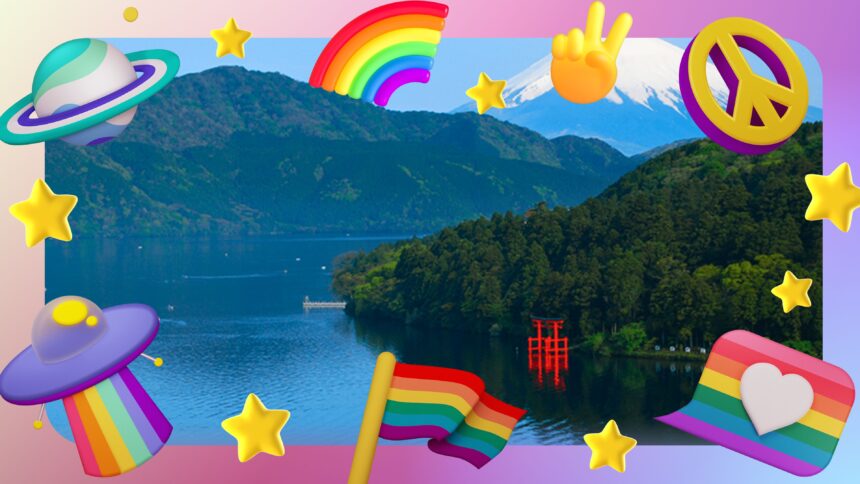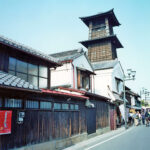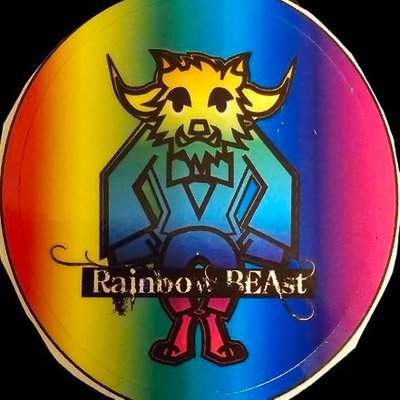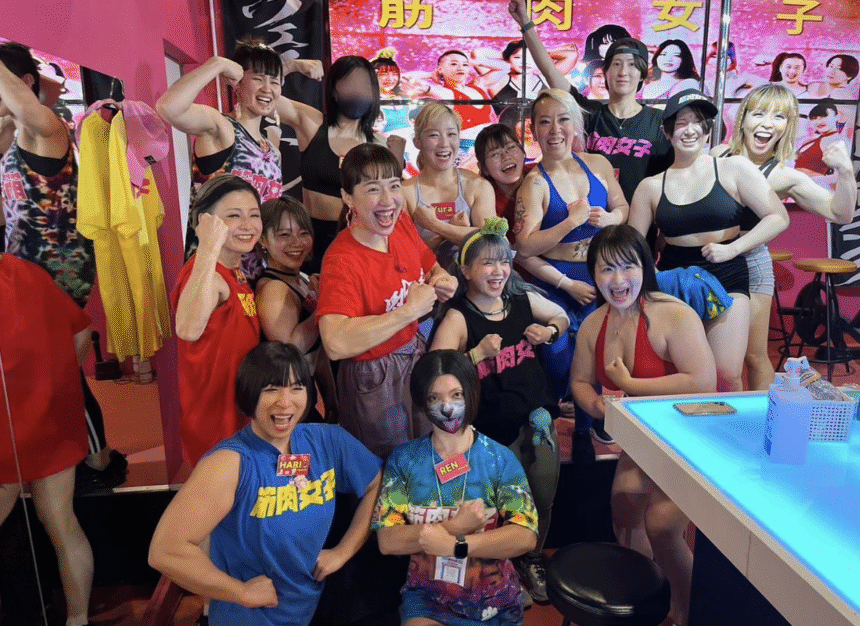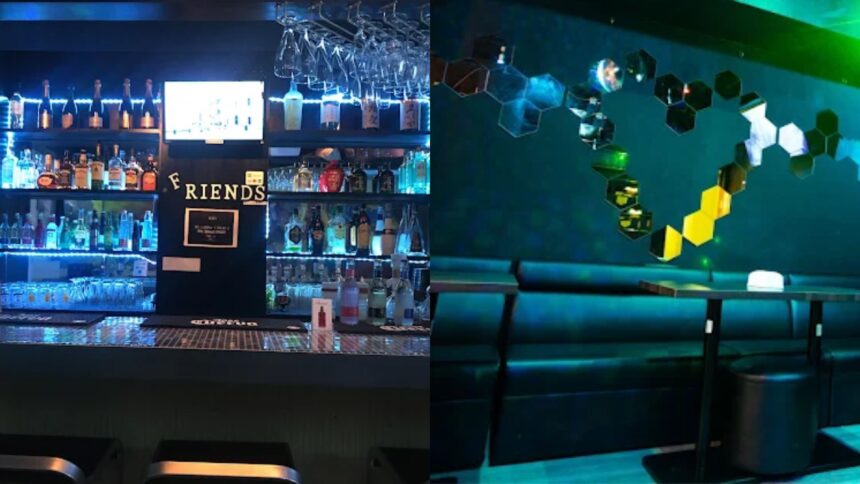Only 80 kilometers from Tokyo, in the neighbouring prefecture of Kanagawa, lies the mountainous town of Hakone. Dedicated otaku may know the town best as the site of the fictional city of Tokyo-3 from the classic series Neon Genesis Evangelion – and indeed, anyone visiting will find a number of Evangelion-related merchandise on sale here. However, Hakone has a lot more going for it than being the setting for mecha powered by teenage angst. It is a quiet getaway close to nature, and its tourist-centered economy means that it is welcoming to any and all guests, including LGBTQ+ visitors. Let’s get into it!
Owakudani

This is the easiest recommendation to make for anyone staying or stopping at Hakone – provided you’re not to sensitive to smell. It is an active volcanic valley, where the high volume of sulphur that is expelled from beneath the ground daily has stained some of the stone a light green color. More than that, when you reach the top of the valley via cablecar, you will hear triumphant music as your ride reaches the apex of its journey and you get your first glance of the valley – and your first smell of sulphur. It can be a little overpowering at first, but you soon get used to it, and on a clear day, Mt. Fuji can be seen in all its splendor from your position atop the valley.
A local delicacy here is the kuro-tamago, or Black Egg. Not to be confused with a century egg, these are hard boiled eggs cooked in the hot spring waters that run through Owakudani. The presence of sulphur and other volcanic minerals in the water turns the shells of the egg pitch black. The egg inside, however, maintains its while and yellow color and hard boiled texture, even if it does have a slightly sulphuric smell (but not taste). Legend has it that eating one of these eggs will extend your lifespan by seven years.
- Location: map
Lake Ashinoko
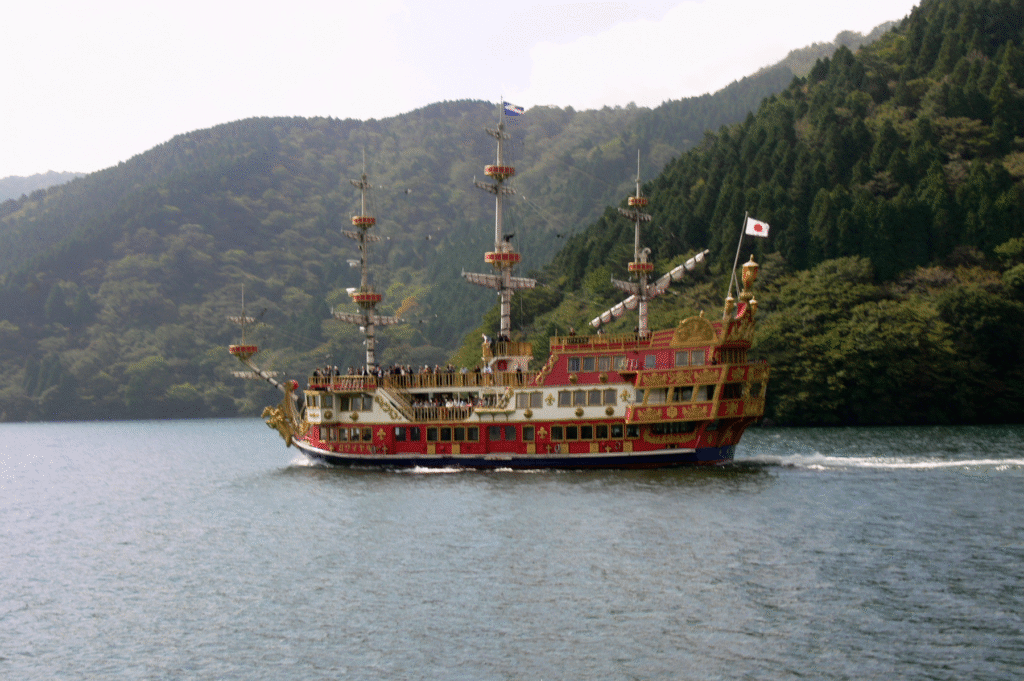
This is a gorgeous crater lake, formed nearly a millennium ago by an eruption from nearby Mt. Hakone. Thanks to its proximity to volcanic activity, the area around the lake is home to a number of naturally occurring hot springs, which in turn have been incorporated into a number of onsen and ryokan traditional inns. The high mineral count in the waters has also resulted in truly beautiful surrounding flora, and the hilly surroundings make it an ideal spot for anyone who enjoys a good hike.
If you want to get to the other side of the lake, but you’re not in the mood for walking, you could always cross in style: pirate style. Passengers can board one of three pirate galleons to ferry them across the lake, and enjoy the stunning panoramic views of nature around them, including getting a spectacular vantage of Mount Fuji.
- Location: map
Hakone Open-Air Museum
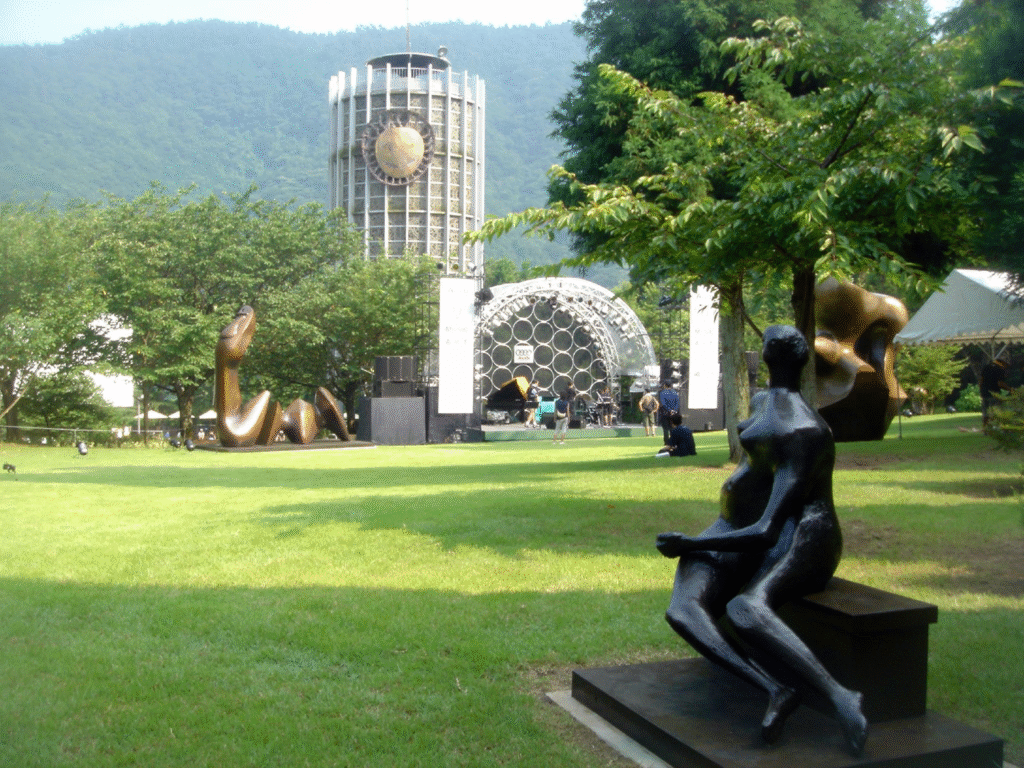
The first open-air museum in Japan, this outdoor gallery is famed for its sculptures collected from masters of the craft across the globe. The work of sculptors such as Émile-Antoine Bourdelle, Antony Gormley, and Susumu Shingu can all be found on the grounds here. Additionally, the museum has a permanent Henry Moore exhibit, where the works of the renowned British sculptor are rotated periodically, with a focus on the piece Upright Connected Forms.
Arguably the jewel in the crown of the exhibits is its Picasso collection, where the founder of cubism’s work can be admired, demonstrating his artistic capabilities beyond just the canvas. Here, you will be able to discover a less often considered side of the artist, with over 300 pieces donated from his estate, including over 180 ceramic pieces.
- Lcoation: map
Hot Springs
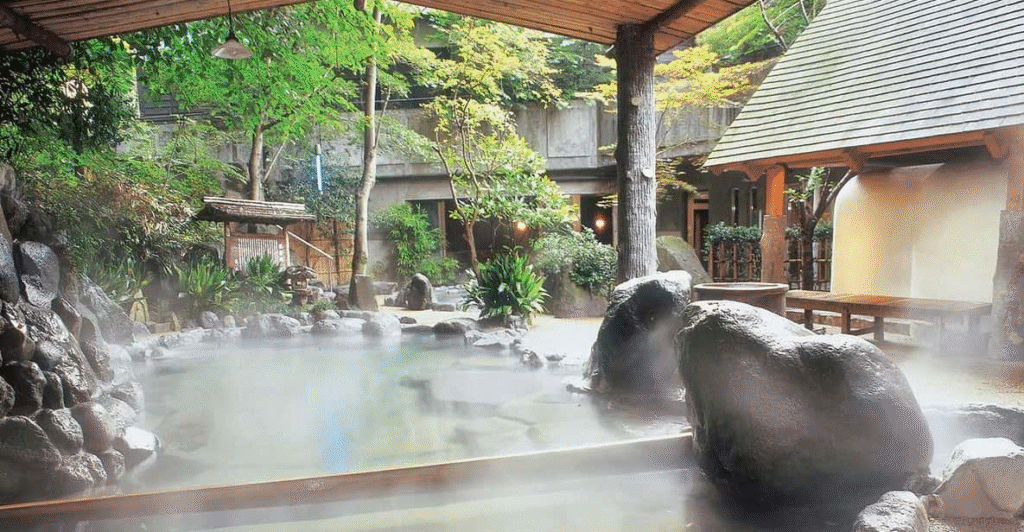
As mentioned above, the high degree of volcanic activity in the area means that a lot of natural hot springs have developed, making Hakone and its surrounds a joy for anyone who wants to enjoy a soak to relax and recharge.
]In addition to the aforementioned Lake Ashinoko, Yumoto has been known as one of the best onsen towns in Japan for centuries. Perhaps the standout is Tenzan Onsen. It is not only a relatively tattoo-friendly onsen, something of a rarity in Japan, and especially rare in Hakone, those who are inked up are permitted entry — on the condition that they come alone, or are the only tattooed person in their group. After a dip in their relaxing baths, which legend has it have restorative and healing properties, you can take your dinner in their restaurant. It is even possible to have shabu-shabu, a dish of beef that you cook yourself by dipping it into hot liquid. Usually, it is dipped into oil, but Tenzan Onsen can provide hot spring water that is alkaline, suitable for drinking, and melts away excess fat from the meat to give the meat a subtle yet refreshing flavor.
Bars

Hakone, being less urban than many other places in Japan, doesn’t have enough of an LGBTQ+ population to support bars focused on the needs of sexual minorities. But that doesn’t mean there aren’t terrific places to drink. The Gora Brewery & Grill produces its own craft beers, many of which have won both domestic and international awards, with the shining star being the Hakone Kohaku, which won an international gold medal in the Belgian Wheat beer category at the 2018 Interntional Beer Cup. It also has a foot spa outside, and serves delicious food.
Root Hakone is another terrific place to go for a tipple. Although it is a guesthouse, its bar welcomes visitors, and has a fine selection of liquors, wines and beers. The staff also enjoy a reputation for their delicious cocktails.
In Summary
Hakone is recommended to almost anyone as a must-go location. It has a unique character, sights (and smells!) that you won’t find anywhere else, and its hilly terrain mean you’ll get a heckof a workout. So grab your ticket, and go get your egg!

